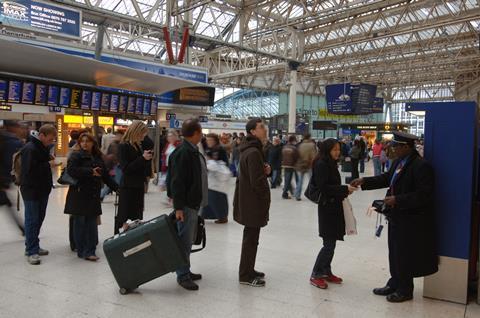
UK: The government has announced that the annual increase in regulated fares in England is to be capped at 5·9%, 6·4 percentage points lower than the Retail Price Index figure on which they have been historically based.
Until the pandemic, fares had been raised in January each year by 1% above the previous July’s RPI. However, the Department for Transport said that owing to ‘unprecedented levels of inflation’ the government has ‘for this year only’ aligned the increase to July 2022’s average earnings growth instead of RPI.
The January increase has also been postponed again, to March 5 2023.
Secretary of State for Transport Mark Harper said the increase would ’strike a balance between the needs of rail passengers and taxpayers as we seek a sustainable long-term financial position following the pandemic’.
Responding to the announcement, interim General Secretary of the TSSA union Frank Ward said ‘the government has a nerve, spinning this as an intervention to keep fares down. The truth is that they’re increasing fares by a bigger percentage than they’re willing to offer nurses, firefighters or rail workers in pay.’
David Sidebottom, director of independent watchdog Transport Focus, said ‘less than half of passengers think the railway currently performs well on delivering value for money’, and ’the need for reform of fares and ticketing in the longer-term must not be forgotten’. This was echoed by Chair of London TravelWatch Arthur Leathley, who said ’longer-term fares and ticketing reform could not be more urgent’.
Clive Wratten, CEO of the Business Travel Association, said ‘people travelling for work have been hammered by strikes, inconsistent timetables and cancelled trains’, and the fare increase ‘is another grab for their wallets’ which is ’asking the beleaguered traveller to fund inefficiencies across the entire railway network’.



